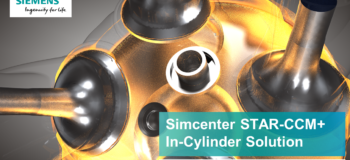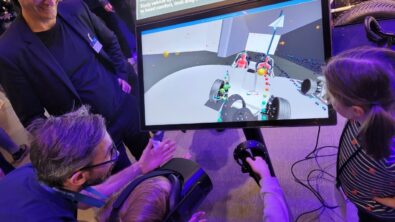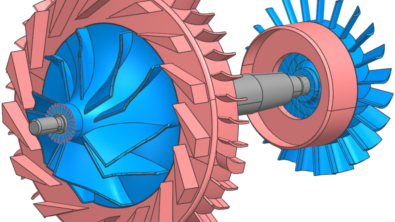Top Tips from a Recovering Simulation Engineer

It occurred to me just the other day, that I’ve now been a simulation engineer for over 25 years (despite my youthful good looks, I really am that old). Back in the early 90s, when I fired up pro-STAR up for the first time, there were no 46 year old simulation engineers (or at least none that had survived to tell the tale).
Most of the advice I got from the previous generation of CFD engineers wasn’t very useful: “you don’t know how lucky you are being able to see your simulations on the screen, we had to make our models using punch cards and post process with a pen and a dot matrix printer.”
To celebrate 25 years in the game, I thought that I’d write my top seven tips for a long (if not successful) career in engineering simulation:
- It’s all about the mesh: There are two types of simulation engineers, those that spend time getting a perfect mesh, and those that take three times as long trying to deal with the consequences of a poor mesh. If you get your mesh right, you’ll spend less time tweaking solver settings later.
- Solve the problem in your head first: Be an engineer. Try to predict the results of your simulation before you even start building the mesh. This will allow you to be intelligent in your modeling choices and be critical about your results.
- Treat unexpected results with skepticism: This is a corollary to 2. If a simulation throws up a result that you were not expecting, assume that it’s your mistake until you can demonstrate otherwise. Get other engineers to check your model setup. There is nothing worse than standing in front of a room of experts and seeing your ‘amazing discovery’ dissolve into a ‘rookie error’.
- Keep your hand calcs: Engineers love the back of envelopes (although envelopes seem to be going the same way as cigarette packets as the engineer’s calculation medium of choice). Some of the cleverest calculations that you’ll ever do will be in defining boundary conditions, calculating time steps, and specifying source terms. If you lose them, then trying to rerun a simulation a year or two later can be very difficult, if not impossible.
- Trust your simulation: Easily the best moments of my career were when I stood up for my simulation results in the face of fierce opposition from other ‘experts’ and experimentalists. I was almost always proved right in the end. This is the pay-off from 2 and 3. Simulation is just a tool, but quite often it’s the best tool available.
- Enjoy yourself: As a simulation engineer in 2018, you really are standing on the shoulders of giants. Think about what guys like Isambard Kingdom Brunel achieved with just a slide rule. Think about what guys like me achieved 25 years ago with 20,000 cells and a computer with less processing power than an iPad. You have better tools than any other engineer in history. Make it count now, because before you know it you’ll be managing other simulation engineers (or writing blogs about it) instead of doing any proper engineering yourself.
- Quit trying to explain what you do for a living to people at parties: They’ll nod, they’ll smile, but they won’t really understand and eventually they’ll walk away thinking you are some sort of idiot. These days I usually just try to pretend that I work in Formula 1.
What are your top tips for the engineers of the future? Leave a comment below and we’ll address the best ones in a future blog.


